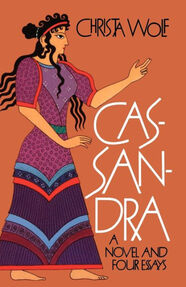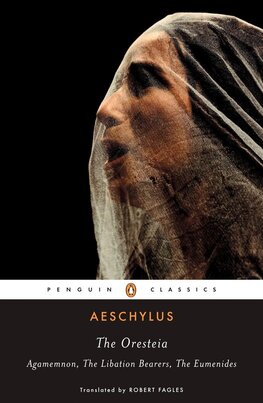Cassandra: A Novel and Four Essays is a book written by Christa Wolf as a re-imagining of the classic Greek myth, Cassandra. I appreciate that while it was meant to simulate ancient literature in its nature, it was still written modernly so as not to require an extra step of translation. I found it tragic that while Cassandra had foretold the fall of the city, she went unheeded. As is human nature, her society held too much hubris, believing that their city would never fall. Curiously, people tend not to listen to warnings, rather preferring to charge ahead with their own biases. If they had heeded Cassandra's warnings, and put some sort of precautions in place, events might have unfolded differently.
0 Comments
Quite frankly, I didn’t much enjoy The Oresteia, written by Aeschylus. This may be on account of many lines’ meanings being covertly worded and intertwined with ancient metaphors that require a level of translation in today’s world. It may otherwise have been due to the premise of this particular writing, as it didn’t strike me as other works have. However, while I hold this opinion of the overall piece, I did find part three of The Oresteia, the Eumenides, intriguing. These beings had been summoned fourth to deliver justice upon Orestes for the murder of his mother. Yet, their sense of justice stems from bygone eras, from cycles of revenge exacted due to other previous violent actions. Eventually, this justice is revealed to no longer hold a place in the Athenian judicial system, where a group decides a verdict rather than an individual. Orestes faces little in the way of repercussions due to his actions, essentially walking free after taking a life, as decided by the majority.
This made me ponder, what is true justice? Even though this text is from many decades past, similar events still occur in the present. A person convicted of a minor infraction may end up jailed for a long time, if not the rest of their life, while one with a track record of violent behavior still roams free. Undoubtedly, there is an aspect of wealth influencing such decisions, yet this diverts the reason for having a judicial system. Even if one is to be rightfully held to the consequences of their actions, who is to decide what justice they should face for their infringement? The will of the majority is ever shifting, with punishments being constantly deemed as too strict or too lenient. Even the Furies came to the realization that what they had been exacting wasn’t precise justice. Simply put, in today’s world, much like that of the time of The Oresteia, an answer to the question of justice is yet to be fully realized. |
Archives
November 2021
Categories |


 RSS Feed
RSS Feed
